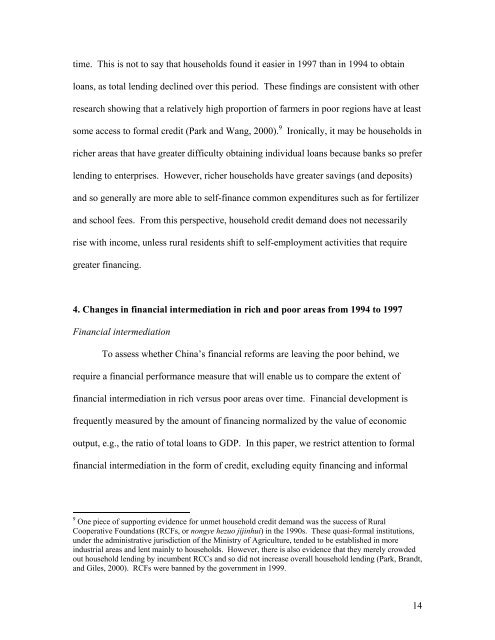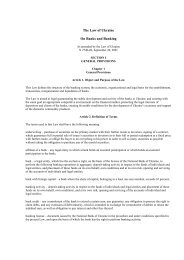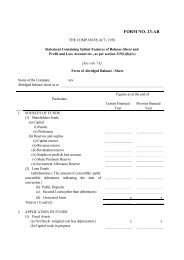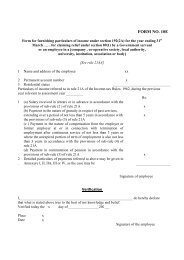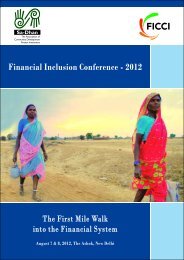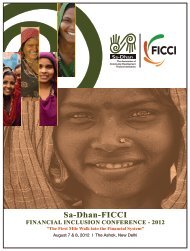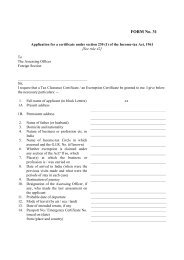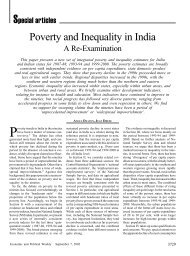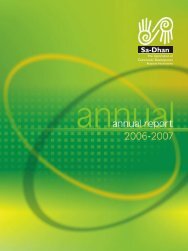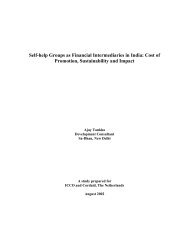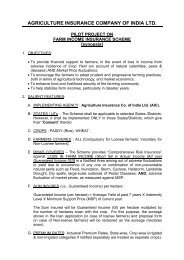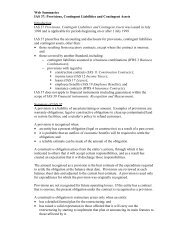Are China's Financial Reforms Leaving the Poor Behind - Harvard ...
Are China's Financial Reforms Leaving the Poor Behind - Harvard ...
Are China's Financial Reforms Leaving the Poor Behind - Harvard ...
You also want an ePaper? Increase the reach of your titles
YUMPU automatically turns print PDFs into web optimized ePapers that Google loves.
time. This is not to say that households found it easier in 1997 than in 1994 to obtainloans, as total lending declined over this period. These findings are consistent with o<strong>the</strong>rresearch showing that a relatively high proportion of farmers in poor regions have at leastsome access to formal credit (Park and Wang, 2000). 9Ironically, it may be households inricher areas that have greater difficulty obtaining individual loans because banks so preferlending to enterprises. However, richer households have greater savings (and deposits)and so generally are more able to self-finance common expenditures such as for fertilizerand school fees. From this perspective, household credit demand does not necessarilyrise with income, unless rural residents shift to self-employment activities that requiregreater financing.4. Changes in financial intermediation in rich and poor areas from 1994 to 1997<strong>Financial</strong> intermediationTo assess whe<strong>the</strong>r China’s financial reforms are leaving <strong>the</strong> poor behind, werequire a financial performance measure that will enable us to compare <strong>the</strong> extent offinancial intermediation in rich versus poor areas over time. <strong>Financial</strong> development isfrequently measured by <strong>the</strong> amount of financing normalized by <strong>the</strong> value of economicoutput, e.g., <strong>the</strong> ratio of total loans to GDP. In this paper, we restrict attention to formalfinancial intermediation in <strong>the</strong> form of credit, excluding equity financing and informal9 One piece of supporting evidence for unmet household credit demand was <strong>the</strong> success of RuralCooperative Foundations (RCFs, or nongye hezuo jijinhui) in <strong>the</strong> 1990s. These quasi-formal institutions,under <strong>the</strong> administrative jurisdiction of <strong>the</strong> Ministry of Agriculture, tended to be established in moreindustrial areas and lent mainly to households. However, <strong>the</strong>re is also evidence that <strong>the</strong>y merely crowdedout household lending by incumbent RCCs and so did not increase overall household lending (Park, Brandt,and Giles, 2000). RCFs were banned by <strong>the</strong> government in 1999.14


